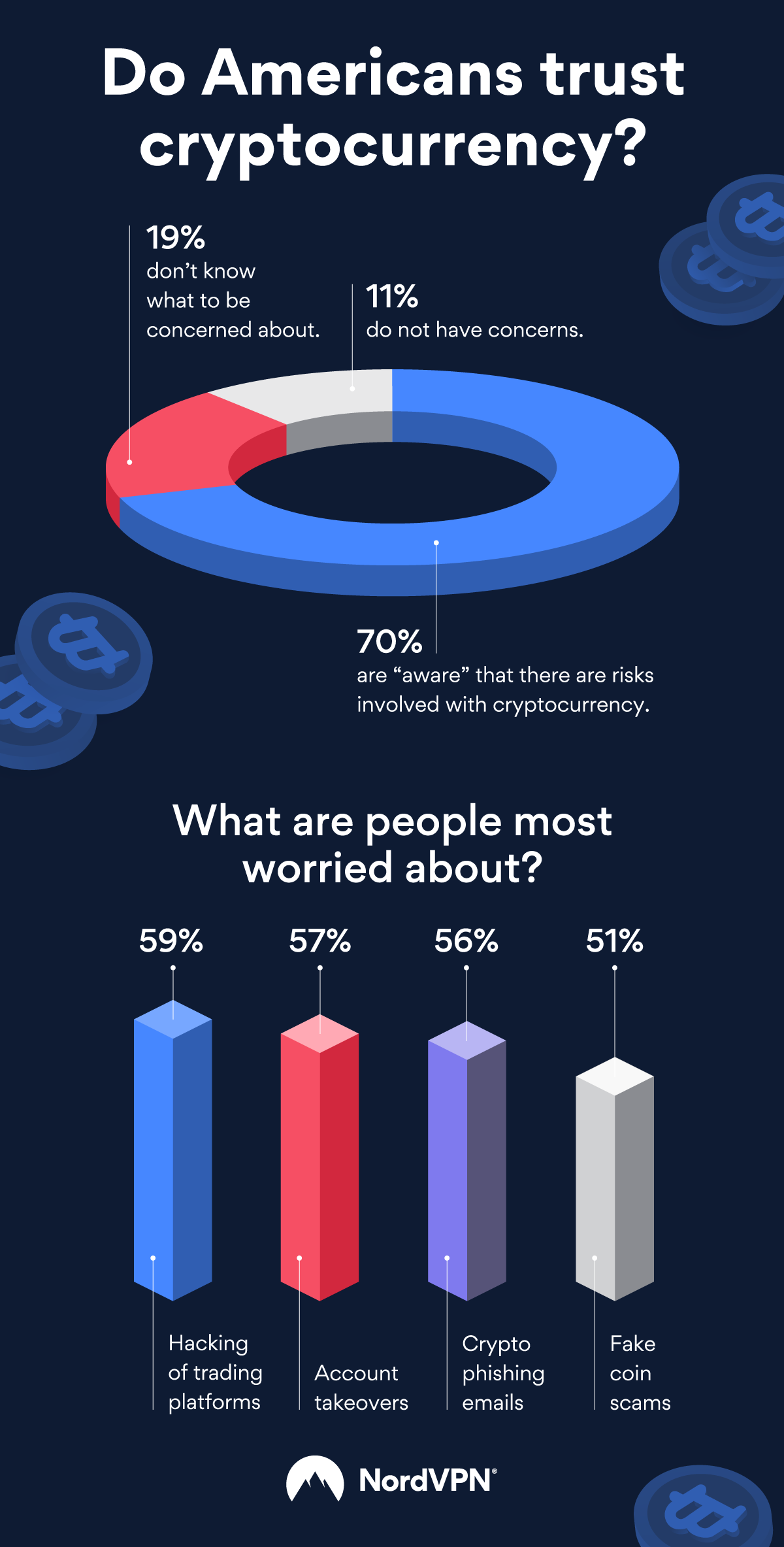Can you trust cryptocurrency?
Would you feel safe making an online payment with cryptocurrency? According to a new study by NordVPN, 7 in 10 Americans have security concerns about digital currency transactions. So why are people worried? And what can you do to protect yourself online?
The results
A new NordVPN study has found 7 in 10 Americans would have concerns about the security of purchases made with cryptocurrency.
They expressed unease about the prospect of cryptocurrencies becoming the standard for online purchases, along with a range of related worries.
In contrast, the remaining 3 in 10 reported that they “don’t even know what to be concerned about” (19%), or “do not have concerns” (11%).
Let’s unpack these results.

The details
The survey, which included more than 1000 respondents in the US, found that 68% of respondents were “aware” that there were risks involved with cryptocurrency.
These risks that people were aware of included:
- Hacking of trading platforms, systems, and exchanges (59%)
- Account takeover (57%)
- Phishing emails, calls, or texts alerting a change in funds (56%)
- Fake coin & system scams (51%)
69% of all respondents had some understanding of what cryptocurrency is, and how it could be used, but concerningly, 32% of that group did not report any awareness of the associated risks.
Good news, and bad
Looking at these results, there’s good news, and bad. The good news is that, as awareness around cryptocurrencies grows, people are becoming more conscious of the risks involved with this technology.
The more understanding individual consumers have of cyber threats, the better equipped they’ll be to protect themselves.
However, the bad news is that 32% of the people, while being aware of cryptocurrency, don’t seem to know much about the dangers of crypto-related crime and cyberattacks. As use of digital currencies become more widespread, that lack of awareness could be a real problem.
However, this is just part of a larger, more troubling trend.
Cybersecurity awareness
The real issue is that many people in the wider population, in the US and beyond, have a poor understanding of online risks in general.
In a world where the majority of the population now uses the Internet every day, cybersecurity awareness has never been more important. Here are three steps you can take right now to improve your online security.
- Create stronger passwords. Our passwords are often the only things standing between hackers and our online accounts. That’s why it’s essential to use very long, complex passwords, both combining numbers and characters. If possible, use a password manager, and make use of two-factor authentication to boost your security.
- Be wary of unexpected emails. Hackers often use phishing emails to try and trick victims into downloading malware, or exposing their login credentials. As a rule, be wary of any email in which the sender urges you to click on a link or give up personal information. If you recognize the sender as a trusted business or coworker, contact them directly by phone or with a new email, to check that the first message was authentic.
- Use a VPN. When you use a virtual private network, you can protect your internet traffic with layers of powerful encryption. Premium services also offer a range of useful extra features, like NordVPN’s Threat Protection Pro. This service will help you avoid websites that are known to host malware and other dangerous downloads. And with one account, you can protect up to 10 devices, including your router!
